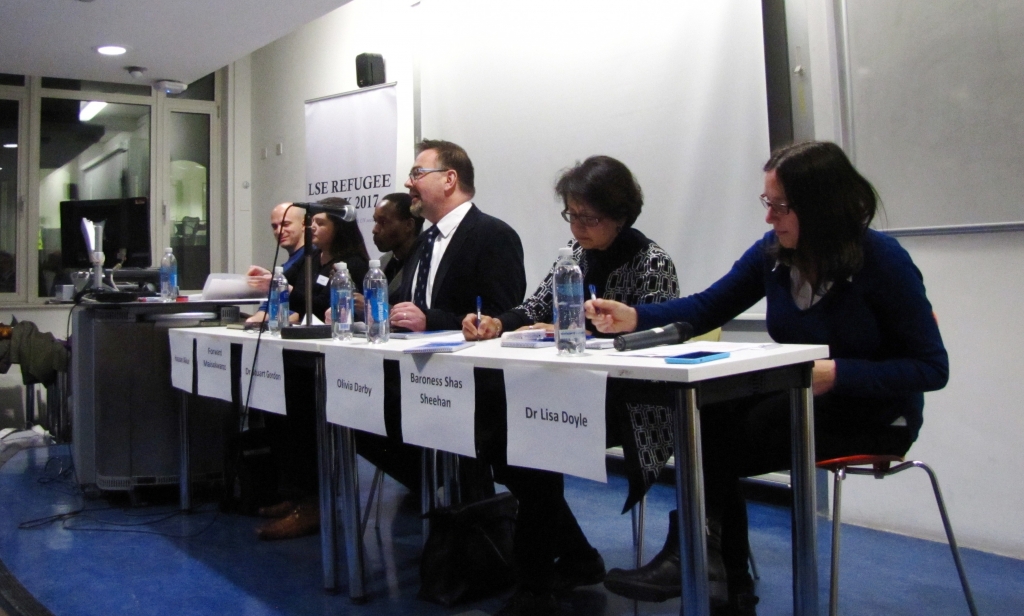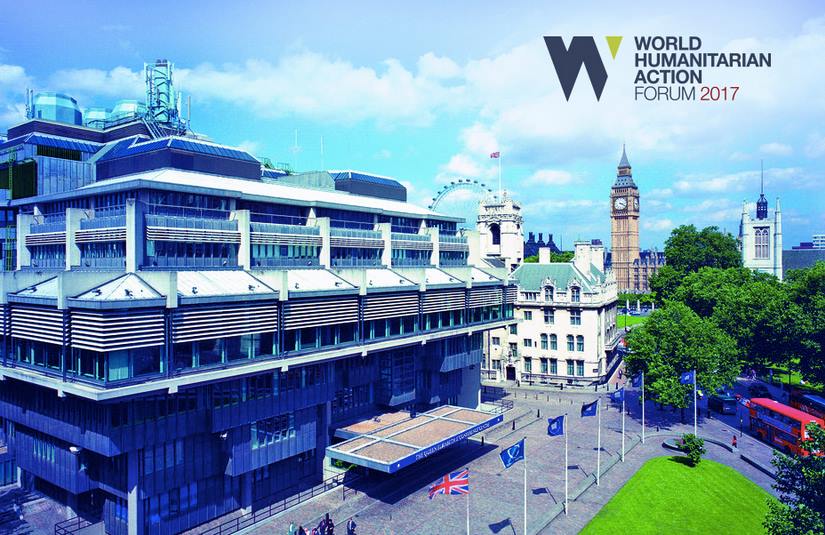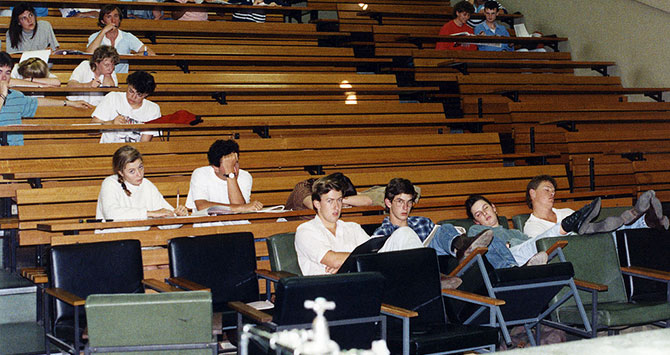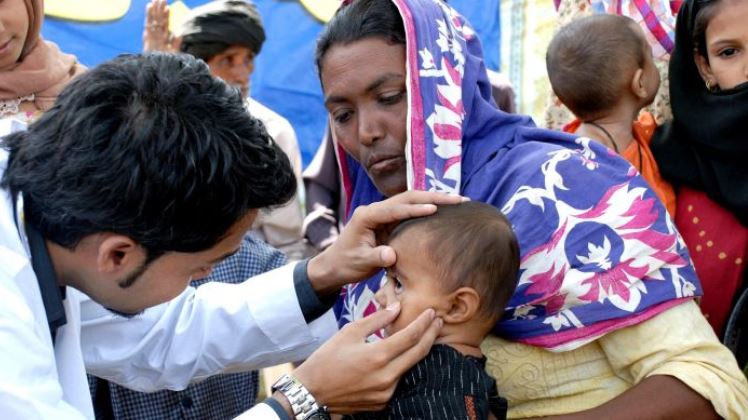Earlier this year, students from LSE SU STAR and the UN Societies came together to organize LSE Refugee Week 2017 which ran from the 6th to the 9th of February. With funding from the LSE Annual Fund, the aim of the week was to ‘explore the ‘untold stories’ of Refugees and provide an innovative perspective, one that goes beyond global media’s coverage of these catastrophes.’ Annika, Celestine, Dalia, and Marta report on an event they organised that brought together a panel of experts to discuss the UK’s response to the “crises”.
How is the UK responding to the current refugee “crisis”? Various students from the International Development Department were involved in the organization of a panel discussion to gain a more nuanced understanding of refugee support in the UK. Under the witty moderation of Dr Stuart Gordon the conference brought a brilliant set of panelists from the British government, NGOs and civil society to the table. The discussion examined different facets of the UK’s response to contemporary refugee movements, shining a light on the individual experiences of refugees entering the country, who, in the words of Stuart Gordon, form a “differentiated community full of courageous people”.
The main point of discussion were the varied approaches of the actors represented. The Refugee Council and Wonder Foundation shed light on impressive examples of civil society in the UK; Baroness Shenaan, Shadow Secretary of State for International Development, commented on the controversial policy choices taken recently, especially the end of the Dubs Amendment; and Forward Maiskwadzo gave insights on the role of the media and public campaigning in informing and influencing parliamentary work. Most importantly, personal stories, narratives of perilous journeys – on shanty boats, by train or in the back of refrigerating lorries – in search of a better life were shared and even shown on video by Hassan Akkad, a Syrian refugee who filmed and co-produced the BBC series ‘Exodus’.
The overarching message from the panel was one of empathy: the importance of recognizing the human stories behind the latest news, and the moral imperative of the reality that is happening today in order to build relationships with those fleeing their countries, challenging the “politics of walls” and the crisis narrative presented in Europe.
A special thanks to the panelists Baroness Shas Shenaan (Shadow Secretary of State for International Development), Hassan Akkad (Photographer and Filmmaker), Forward Maisokwadzo (Media and Communications Officer, City of Sanctuary – also one of the founders of Exiled Journalist Network), Lisa Doyle (Head of Advocacy, Refugee Council) and Olivia Darby (Director of Policy and Campaigns, Wonder Foundation).
Thanks also to Dr Stuart Gordon for his significant contribution, and to everyone who managed the perfect running of the event.
About the Panelists:
BARONESS SHAS SHEEHAN – Shadow Secretary of State for International Development
Baroness Shash Sheehan is a Liberal Democrat Lords Spokesperson for International Development and life peer. She has visited Calais and been very vocal about putting pressure on the government regarding the refugee situation.
HASSAN AKKAD– Photographer and Filmmaker
Hassan is an English teacher and photographer who left his hometown of Damascus, Syria to seek asylum in Europe. Having filmed his entire journey on a GoPro, his footage and story were featured on the award-winning BBC 2 documentary series Exodus: Our journey to Europe.
FORWARD MAISOKWANZO – Media and Communications Officer, City of Sanctuary (Bristol)
Forward left his native country in 2002 after being abducted and beaten while working for The Independent. He initially came to the UK for medical treatment through the National Union of Journalists. After studying for an MA in Journalism at City University, Mr Maisokwadzo joined MediaWise, a journalism ethics charity also based in Bristol, and helped set up the EJN (Exiled Journalist Network).
DR LISA DOYLE – Head of Advocacy, Refugee Council
Lisa Doyle is the Advocacy and Influencing Manager at the Refugee Council, where she is responsible for overseeing its campaigning, media, parliamentary, policy and research work. Since joining the charity in 2005 she has undertaken research on a variety of issues that affect refugees and asylum seekers.
OLIVIA DARBY – Director of Policy and Campaigns, Wonder Foundation
Olivia has previously undertaken a range of policy and project management work. This has included working directly with disadvantaged children and families in Brixton, where she also set up the Into School programme for recently arrived, unaccompanied minor and refugee girls. She has volunteered extensively, including setting up and leading projects for the benefit of women and young people in the UK and abroad, for example in Brussels and Kenya.
About the authors:
Marta Santoboni – MSc Development Management
Celestine von Schorlemer – MSc in Criminal Justice Policy
Dalia Abu Yassien – MSc Anthropology and Development
Annika Schlingheider – MSc Development Management
The views expressed in this post are those of the author and in no way reflect those of the International Development LSE blog or the London School of Economics and Political Science.






